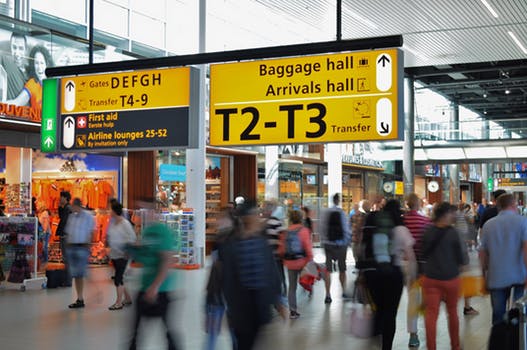With current IT advancements, working from anywhere is now as simple as accessing the internet on your device. Owners, managers and employees are embracing the flexibility of working while traveling, making it the new global norm. While you were in the comforts of the office, you are being protected by professionally designed firewalls, security infrastructure, robust software and perhaps even multiple intrusion detection mechanisms. However, as soon as you step out of the office, all those protections disappear, leaving your device and its associated data at a much greater risk.
Cyber attackers love to collect any data they can lay their hands on. They usually adopt a hack first, evaluate later approach. They don’t usually know what they are getting until the data is in their hands. This mass grab attitude means everyone vulnerable. Almost any data can be valuable and sold online. Imagine what others can do with your personal data, banking statements, personal contact lists or even your personal images and photos. That’s just personal data. What about company/business data? Client, supplier contact information, quotes, prices, mark-ups, marketing materials … The list is endless. All the information that you store on your device. The value of the data is usually worth a lot more than the device itself.
The following are 3 common ways that a hacker may attack:
Flaunting Opportunity: Whether your employee left their laptop at a cafe or it was being stolen, the result is the same – the device is gone. Hackers will now take advantage of any opportunity to gain access to a device, including taking them from hotel rooms and even asking to ‘borrow’ them for a few minutes to install spyware, before handing it back.
Spoofing a Wi-Fi Hotspot: We have all come to expect free Wi-Fi networks wherever we go. And that is when hackers will take advantage of this trust we have to create their own free, unsecured network, just waiting for an unsuspecting traveller to check a quick email.
Intercepting an Unsecured Network: Hackers do not need to own the Wi-Fi network in order to steal contents from it. Data travelling across an unsecured network is visible and are available to anyone with the right software.
Sounds a little scary? But its alright. You don’t have to lock all your employees inside the office or cancel any travel plans. One can minimize the risk by taking these 4 precautions. Precautions that will help increase cyber safety and protect your business data while you are on the go.
- Always make a backup before you travel: Should your device is lost or damaged, you will be able to replace the device with a new one quickly and restore all the data from a backup with minimal downtime.
- Do not use public Wi-Fi: Always wait till you have access to a secured network before going online, even if it is just to check an email.
- Use passwords and encryption: At a minimum, ensure that you have a password on your device, or even better, to have full drive encryption. By doing that, even if your data storage is removed from the device, the contents are inaccessible.
- Act fast after loss: If your device is lost or stolen, immediately notify the appropriate people. This may be your IT provider so they can change passwords, your bank so they can lock down accounts and any personnel who need to be aware of the breach so they will not be tricked into allowing further breaches.
Remember, its a chaotic world out there. One needs to be extra vigilant whenever one steps out of the office. Stay safe!
ManagedIT.SG is an IT Support, IT Solutioning and Managed IT Service Provider specializing in serving Small Businesses in Singapore. Call us at +65 6748 8776 and let us manage your Small Business IT today!
